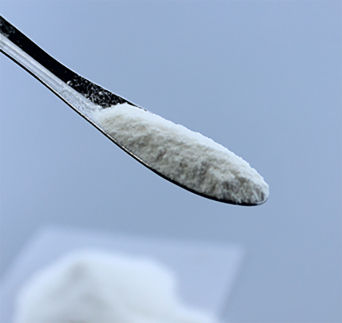
Nov . 07, 2024 15:35 Back to list
Understanding Hydroxyethyl Cellulose and Its Applications in Various Industries
What is Hydroxyethyl Cellulose?
Hydroxyethyl cellulose (HEC) is a water-soluble polymer derived from cellulose, a natural polymer abundant in plant cell walls. As a derivative of cellulose, HEC has gained prominence in various industries due to its unique properties and versatility. This article explores what hydroxyethyl cellulose is, its production process, properties, applications, and benefits.
Production of Hydroxyethyl Cellulose
The production of hydroxyethyl cellulose involves the etherification process of cellulose with ethylene oxide. Cellulose is first extracted from natural sources, such as cotton or wood pulp. The extracted cellulose is then reacted with ethylene oxide in the presence of an alkaline catalyst. This reaction adds hydroxyethyl groups to the cellulose molecule, resulting in HEC. The degree of substitution, which refers to the number of hydroxyethyl groups introduced per anhydroglucose unit of cellulose, can be controlled during this process, allowing manufacturers to produce HEC with desired characteristics.
Properties of Hydroxyethyl Cellulose
HEC possesses several distinctive properties. It is a white, free-flowing powder that is odorless and tasteless. One of its most notable features is its high viscosity, which can be adjusted based on the concentration of HEC in a solution. It is soluble in water and can form viscous solutions, even at low concentrations. The viscosity of HEC solutions varies with temperature and pH, making it suitable for various formulations.
HEC is also known for its excellent film-forming ability and stability under varying conditions. It is resistant to heat, acids, and alkalis, which allows it to maintain its properties in different environments. Moreover, HEC is non-toxic and environmentally friendly, making it an attractive choice for many applications.
Applications of Hydroxyethyl Cellulose
what is hydroxyethyl cellulose

Due to its unique properties, hydroxyethyl cellulose finds applications in numerous industries. One of the primary applications is in the construction industry, where it is used as a thickening agent in cementitious compounds, adhesives, and tile grouts. HEC enhances the workability of these materials, providing better adhesion and improved water retention.
In the cosmetics and personal care industry, HEC is commonly included in lotions, creams, shampoos, and gels. It acts as a thickener, stabilizer, and emulsifier, helping to improve the texture and viscosity of these products. Additionally, HEC's film-forming properties contribute to the performance of hair styling products and skin care formulations.
The food industry also utilizes hydroxyethyl cellulose as a food additive. It can be found in various food products as a thickening agent and stabilizer, helping to improve texture and consistency. Furthermore, HEC is used in pharmaceuticals as a binder and thickening agent in topical and oral formulations.
Benefits of Hydroxyethyl Cellulose
The use of hydroxyethyl cellulose offers several benefits. Its ability to enhance the viscosity and stability of formulations ensures that products maintain their desired consistency, which is crucial for consumer satisfaction. HEC's non-toxic nature makes it suitable for applications in food, cosmetics, and pharmaceuticals, where safety is paramount.
Moreover, its environmental friendliness aligns with the growing trend towards sustainable and natural products. As consumers become more conscious of the ingredients in their products, the demand for safe and biodegradable additives like hydroxyethyl cellulose is likely to increase.
In conclusion, hydroxyethyl cellulose is a versatile and valuable ingredient in various industries, from construction to cosmetics and food. Its unique properties make it an essential component in improving the performance and quality of numerous formulations, paving the way for innovation and sustainable practices in product development. As industries continue to evolve, the importance and applications of HEC will undoubtedly expand, solidifying its position as a key player in the world of polymers.
-
Versatile Hpmc Uses in Different Industries
NewsJun.19,2025
-
Redispersible Powder's Role in Enhancing Durability of Construction Products
NewsJun.19,2025
-
Hydroxyethyl Cellulose Applications Driving Green Industrial Processes
NewsJun.19,2025
-
Exploring Different Redispersible Polymer Powder
NewsJun.19,2025
-
Choosing the Right Mortar Bonding Agent
NewsJun.19,2025
-
Applications and Significance of China Hpmc in Modern Industries
NewsJun.19,2025







